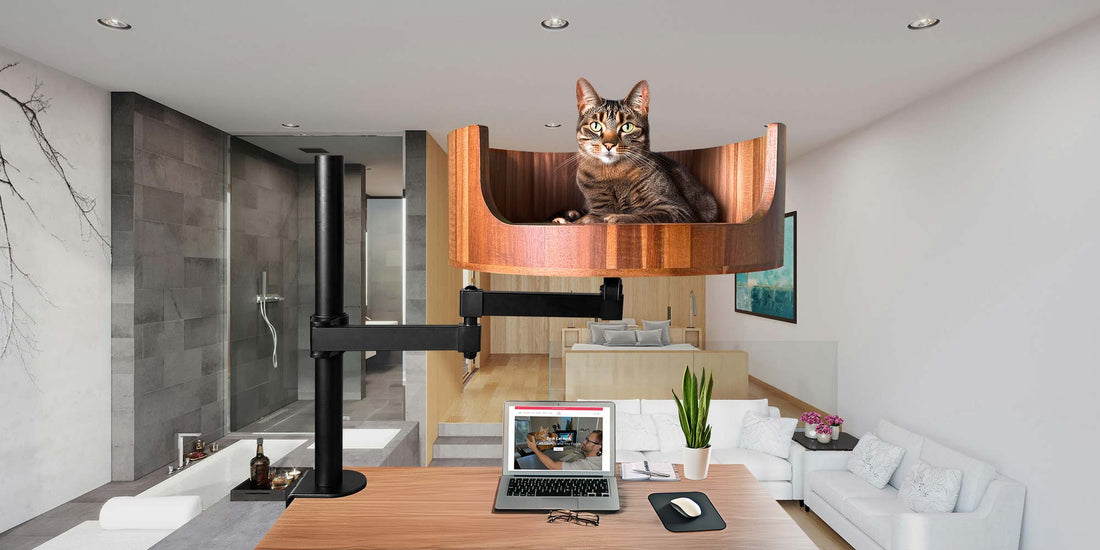
My Cat Never Hisses: Understanding Feline Behavior
Share
Ever wondered why some cats are constantly hissing while others never seem to make a peep? If you’re one of the lucky pet owners whose feline friend never hisses, you may be curious about the reasons behind this behavior. In this article, we delve into the intricacies of feline behavior to understand why some cats hiss while others don’t, shedding light on the various factors that influence our furry companions’ vocalizations.
From genetics to socialization, a cat’s tendency to hiss can be influenced by a multitude of factors. By exploring the underlying reasons for this behavior, we can gain a deeper understanding of our cats’ emotions and needs. Whether your cat is a hisser or a silent observer, knowing more about feline behavior can help strengthen the bond between you and your beloved pet. So, if you’ve ever wondered why your cat never hisses, stay tuned as we uncover the secrets behind our feline companions’ unique behaviors.
1. Cats communicate through body language, vocalizations, and behavior, rather than just verbal cues like hissing.
2. Understanding a cat's unique personality and preferences can help foster a strong bond between cat and owner.
3. Recognizing signs of stress, fear, or aggression in a cat can prevent conflicts and improve their overall well-being.
4. Providing a comfortable and safe environment, such as a cozy cat nest, can help reduce anxiety and create a sense of security for your feline friend.
5. By observing and responding to your cat's needs, you can strengthen your relationship and ensure a happy and healthy life together.
Causes of Hissing in Cats
Some common reasons why cats hiss include fear, stress, aggression, pain, or territorial behavior. Cats may hiss when they feel threatened by a new person or pet in their environment, when they are in pain or discomfort, or when they are protecting their territory from perceived intruders. It is important to pay attention to the specific context in which your cat is hissing to determine the underlying cause.
Hereditary Factors
Some cats may have a genetic predisposition to being more vocal or aggressive, leading them to hiss more frequently than others. Certain breeds, such as Siamese or Bengals, are known to be more vocal and expressive in their communication. Understanding your cat's breed characteristics and temperament can help you better interpret their behavior and respond accordingly.
Socialization and Training
Proper socialization and training play a crucial role in shaping a cat's behavior, including their tendency to hiss. Cats that have been well-socialized from a young age are more likely to be comfortable and confident in various situations, reducing the likelihood of hissing as a response to fear or stress. Positive reinforcement training methods can also help to modify unwanted behaviors and encourage more positive interactions with your cat.
Medical Issues
In some cases, hissing may be a sign of an underlying medical issue that requires attention. Cats may hiss when they are in pain or discomfort due to conditions such as dental problems, arthritis, or urinary tract infections. It is essential to consult with a veterinarian if your cat's hissing behavior is accompanied by other symptoms, such as lethargy, loss of appetite, or changes in litter box habits, to rule out any potential health concerns.
Behavioral Modification Techniques
If your cat exhibits excessive hissing behavior, it is essential to implement appropriate behavioral modification techniques to address the underlying cause effectively. This may involve creating a calm and predictable environment for your cat, providing enrichment activities to alleviate boredom and stress, or working with a professional animal behaviorist to develop a comprehensive behavior modification plan. Patience, consistency, and positive reinforcement are key elements in successfully modifying your cat's behavior over time.
## FAQ
### Can the Desk Cat Nest help my cat feeling comfortable and secure without ever hissing?
Yes, the Desk Cat Nest can provide a cozy and safe space for your cat to relax and feel secure. By having their own designated spot, cats are more likely to feel comfortable and less likely to exhibit anxious behaviors such as hissing.
### Will the Desk Cat Nest fit on my desk?
The Desk Cat Nest is designed to fit easily on most standard-sized desks. Its compact size allows it to fit in tight spaces while still providing ample room for your cat to lounge comfortably.
### How do I clean the Desk Cat Nest?
The Desk Cat Nest comes with a removable cushion for easy cleaning. Simply unzip the cushion cover and pop it in the washing machine for quick and convenient cleaning. The rest of the nest can be wiped down with a damp cloth to remove any dirt or fur.
### Is the Desk Cat Nest easy to assemble?
Yes, the Desk Cat Nest comes with straightforward assembly instructions and all the necessary tools for quick and easy setup. No complicated or heavy lifting required – just a few simple steps and your cat will be enjoying their new favorite spot in no time.
### Can multiple cats use the Desk Cat Nest at once?
The Desk Cat Nest is spacious enough to accommodate multiple cats at once, making it the perfect lounging spot for households with more than one feline friend. Each cat can have their own designated space within the nest, ensuring harmony and comfort for all.
In conclusion, the Desk Cat Bed is a valuable choice for cat owners looking to ensure their feline friend never hisses. This cozy and comfortable bed provides a safe sanctuary for cats to relax, play, and sleep, promoting a sense of security and reducing stress levels. By offering a designated space for your cat to retreat to, the Desk Cat Bed can help prevent them from feeling anxious or threatened, ultimately leading to a happier and more harmonious relationship between you and your beloved pet. Invest in the Desk Cat Bed today and give your cat the comfort and security they deserve.



















































